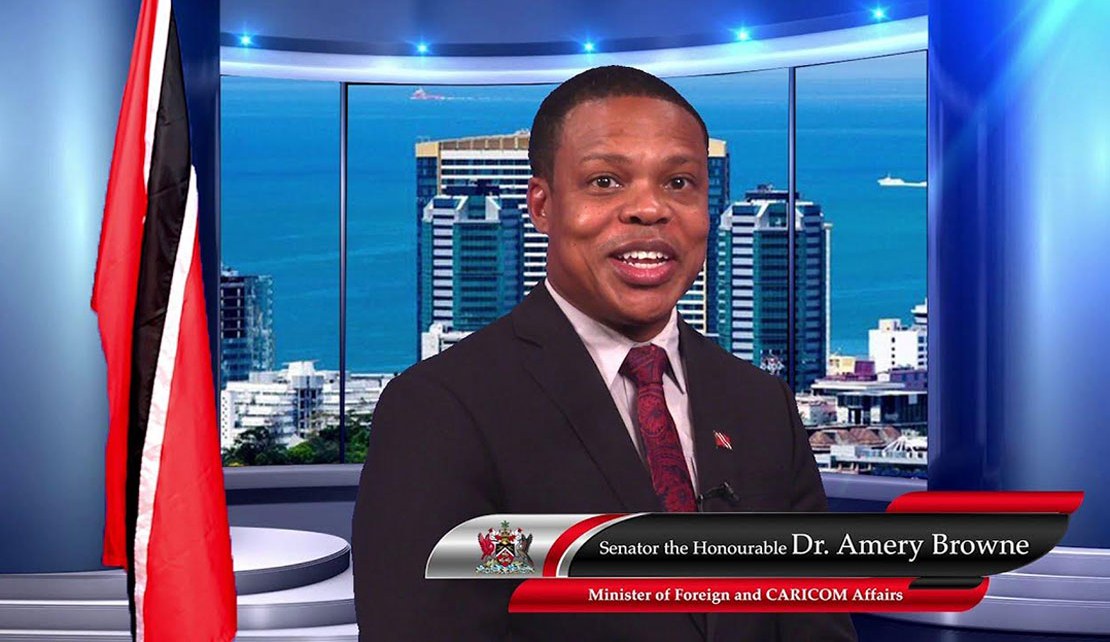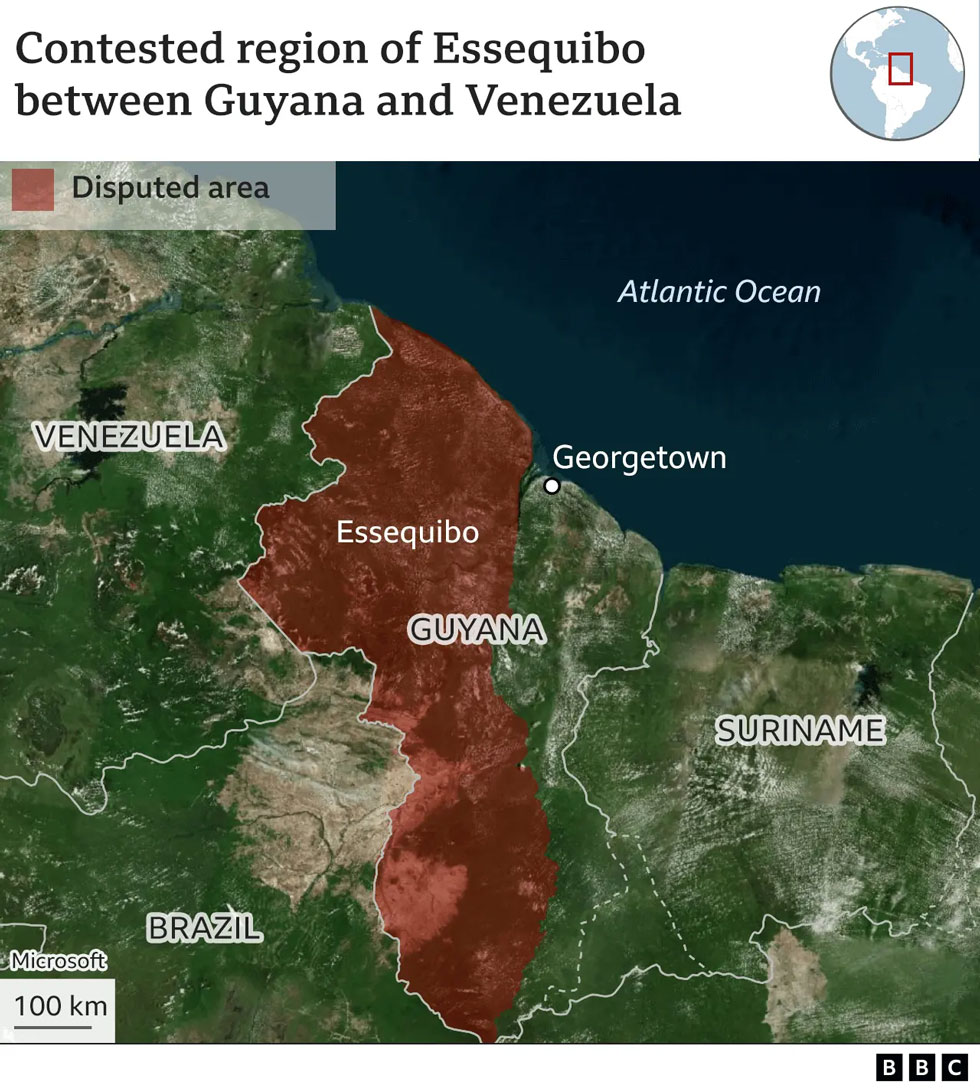CARICOM | Trinidad warns Venezuela: Hands Off Guyana’s Essequibo

GEORGETOWN, Guyana, April 5, 2024 - In a marked effort to de-escalate regional tensions, Trinidad and Tobago's Minister of Foreign and Caricom Affairs, Dr. Amery Browne, has issued a stern call to Venezuela, urging the country to uphold the territorial sovereignty of Guyana.
This appeal comes amidst growing concerns from Guyana over Venezuela's stated intentions to annex the Essequibo territory, an action that Guyana deems a flagrant violation of its territorial integrity and international norms.
The Trinidad Guardian reported Browne's statements on Friday, highlighting CARICOM’s unified stance on the matter. The controversy centers on the Essequibo region, a dispute currently under the International Court of Justice's (ICJ) scrutiny.
“Caricom speaks with one voice on issues related to the Guyana-Venezuela border and our regional family remains united. T&T’s consistent position calls for full respect for the territorial integrity and sovereignty of the Co-operative Republic of Guyana and respect for international law and process in the peaceful resolution of disputes,” Amery Browne declared.
Tensions flared anew following an April 3 announcement by Venezuelan President Nicolas Maduro regarding the enactment of the "Organic Law for the Defense of Guayana Esequiba."

In a post on X on April 3, Maduro said, “The decision of December 3 (2023 referendum) has now become a law of the republic, to form part of the legal structure of the internal political and institutional movement of our country.”
He added, “Today we receive a law ratified in its organic nature by the TSJ (Venezuela’s Tribunal Supremo de Justicia- Supreme Tribunal of Justice; and with the power given to me by the constitution, the decision made by the Venezuelans in the consultative referendum will be fulfilled in all its parts, and with this law, we will continue the defense of Venezuela on international stages.”
Guyana's government has criticized this latest Venezuelan action as directly opposing the spirit and letter of the Argyle Declaration, a peace agreement signed by both nations on December 14, 2023, in St. Vincent and the Grenadines.
In a statement on the same day, Guyana’s Foreign Affairs and International Co-operation Ministry said, “This attempt by Venezuela to annex more than two-thirds of Guyana’s sovereign territory and make it part of Venezuela is an egregious violation of the most fundamental principles of international law enshrined in the UN Charter, the Charter of the Organisation of American States (OAS) and customary international law.”
The ministry said Guyana was putting Venezuela, Caricom, the UN and the OAS on notice that it would not agree to the annexation, seizure or occupation of any part of its sovereign territory. “Guyana has always stood by the principles of the UN Charter, the rule of law and the peaceful settlement of disputes.”
The ministry recalled that as a result of the 1966 Geneva Agreement, Guyana and Venezuela were before the ICJ to resolve this matter.

Forde urged that in response to these challenging times, President Ali must exercise decisive leadership by convening national dialogues at all levels of the society to include schools, churches, the labour unions, the private sector, political parties and other key stakeholders. This would be in keeping with Article 13 of the Guyana’s constitution that mandates inclusionary democracy, he iterated.
The senior counsel advised our goal must be to forge a unified front in addressing this existential threat to our nation's sovereignty, he said. “The sovereignty of Guyana transcends political divides; it is a shared treasure that we must all safeguard with unwavering commitment and inclusivity.”
Under the Argyle Declaration, on December 14, 2023, Presidents Mohammed Irfaan Ali of Guyana and Maduro agreed to reject violence and avoid escalating their dispute over Essequibo, committing to peaceful dialogue and reporting any incidents to Caricom, the Community of Latin American and Caribbean States (CELAC), and Brazil.
Despite the ICJ's December 1 directive for Venezuela to abstain from seizing Essequibo, Maduro's recent pronouncements and the enactment of the contentious law underscore a challenging path ahead for diplomatic relations between the two South American nations.
Guyana has reiterated its commitment to the principles of the UN Charter, the rule of law, and peaceful dispute resolution, signaling its staunch opposition to any attempts by Venezuela to annex or occupy its territory.
This ongoing dispute, rooted in historical claims and intensified by recent political developments, underscores the fragility of regional stability and the critical role of international legal frameworks in mediating sovereign conflicts.
As Caricom's response remains awaited, the international community watches closely, hoping for a peaceful resolution that respects the principles of territorial integrity and international law.
-30-
